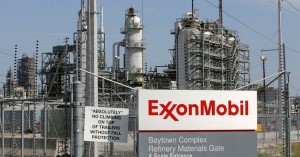Of the many dangerous untruths espoused by the Trump campaign, perhaps none was so flagrant as the one embedded right in the campaign’s central promise, “Make America Great Again.” That phrase seemingly asks us to recall a period when the United States still offered freedom and prosperity to all– when the American Dream was alive and well, unmarred by today’s excesses of bad regulation, Washington elitism, and so-called “political correctness.” But when was that time? When was America great?1
- Was America great in 1776, when the Founding Fathers signed the Declaration of Independence– that magnificent document, penned by Thomas Jefferson? Jefferson, who owned hundreds of slaves, and raped his slave Sally Hemings for decades, and would later push relentlessly for westward expansion and Native American extermination, believing “Indian country belonged in white hands?”
- Was America great in 1917, when President Wilson asked congress for a declaration of war against Germany, asserting “we are glad [to fight] … for the ultimate peace of the world and for the liberation of its peoples? 1917, when suffragist Alice Paul was being force-fed raw eggs through a tube in the psychopathic ward of the DC District Jail, for the grave offense of suggesting women should be allowed to vote?2
- Was America great in 1962, when President Kennedy rallied support for the audacious national effort to land a man on the moon? 1962, when US troops plodded through puddles in Vietnam, burning the huts of the rural poor, and Americans were “faced with the cruel irony” Dr. King would later remark “of watching Negro and white boys on TV screens as they kill and die together for a nation that has been unable to seat them together in the same schools?”
The United States has harbored an abundance of great ideas, great individuals, and great moments. But they have always existed in tandem with profound and unconscionable violence, oppression, and anguish. Moreover, the freedoms and liberties of American life have always fallen disproportionately on the white, the male, the straight, and the wealthy, while the nation’s crimes and atrocities have always fallen disproportionately on the black and brown, the non-straight, the female-bodied, and the poor. For these reasons and more, we cannot nostalgically label as “great” any period of American history.
Continue reading “The Insult and Absurdity of ‘Make America Great Again’”


